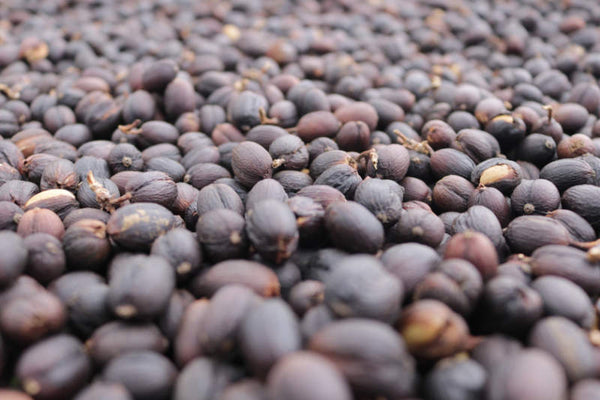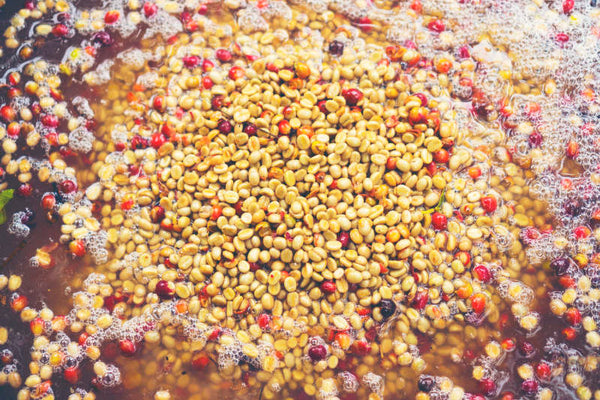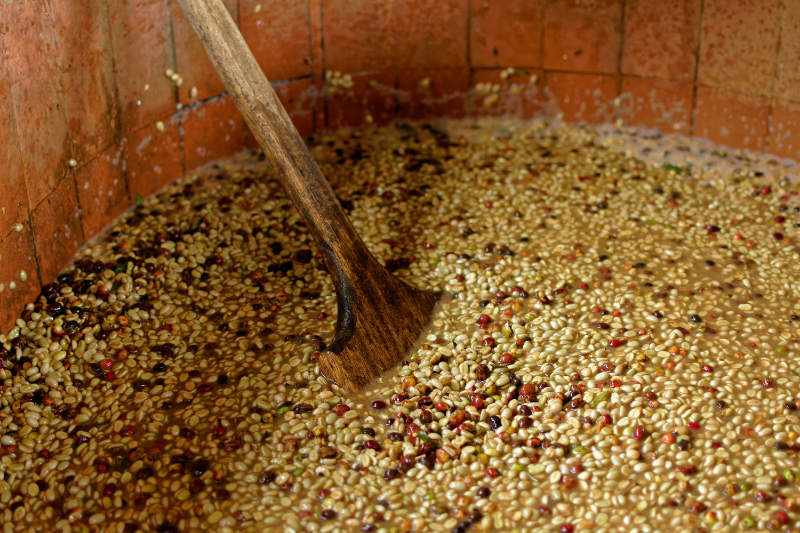The great and terrible fermentation
Fermentation, which many have heard about, but never understood what it means. Let's figure it out together.
To begin with, let's define the terms in order to understand what are we talking about, so we can speak the same language.
Fermentation is a metabolic process that takes place with the participation of microorganisms (bacteria, fungi, yeast), which break down complex sugar molecules into simpler ones under the action of enzymes (The Role of Microbes in Coffee Fermentation and Their Impact on Coffee Quality, Mesfin Haile and Won Hee Kang ).

Fermentation in coffee
Fermentation in coffee is
- an obligatory stage of production, contributing to the separation of coffee beans from shells and pulp, which is rich in polysaccharides (pectin), and to reduce the water content.
- one of the ways to radically affect the taste profile.The start of fermentation is stimulated by enzymes contained in the coffee berry and in the micro flora of the environment. Fermentation can take place in an oxygen or anoxic environment.
Fermentation in one form or another takes place during any processing of coffee (natural, washed, semi-dry). The course of this process and its result depend on many factors.

👉🏼 In other words - ALL coffee is fermented. Therefore, it is incorrect to say that one coffee is fermented and the other is not.What do they mean when they say: “coffee has a bright fermentation ”, “this coffee has a fermented taste”🤔
These professionalisms imply that as a result of fermentation, the coffee has acquired a brighter, more powerful flavor profile. For example, anaerobic fermentation (without access to oxygen) contributes to the appearance of characteristic flavor notes - strong alcohol or wine, tropical fruits, chocolate, fermentation of all of the above, etc.
Little science
To try this coffee, look for the word “anaerobic”, “experimental” on the pack. Sometimes naturally processed coffee can take on similar features (for example, from Colombia)

As a result of fermentation, the flavor profile of the product changes. Kefir, cheese, all kinds of alcohol, vinegar, coffee, tea, soy sauce, jamon, sauerkraut, pickles, kimchi are all products of fermentation.
Speaking in terms of taste, there are molecules in the original product, the taste of which the brain cannot directly interpret as sweet, sour, salty, bitter, or umami.During the fermentation process, these molecules are broken down into simpler elements that provide specific flavors.
Thus, fermentation makes the product more understandable, the taste becomes brighter and recognisable.
Fermenting microorganisms may be initially present in the product or be added to it.
In the first case, we are talking about non-grafted fermentation, in the second - about grafted, that is, provided with the necessary enzyme from the outside.The carriers of such enzymes can be bacteria or fungi.
There are a lot of good bacteria and good fungi. Sourdough bread, vinegar - products of grafted fermentation.
Conclusion
We hope that now this topic became more understandable and if you want to try some good coffee, you know you can find it in our online specialty coffee store.

